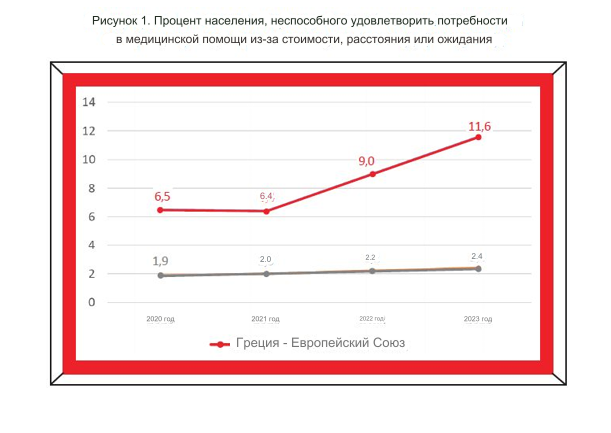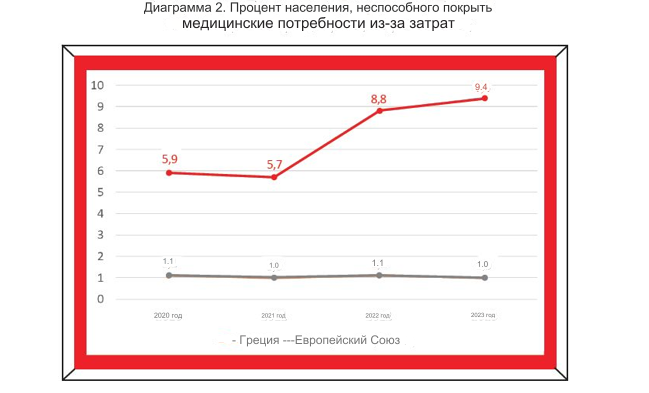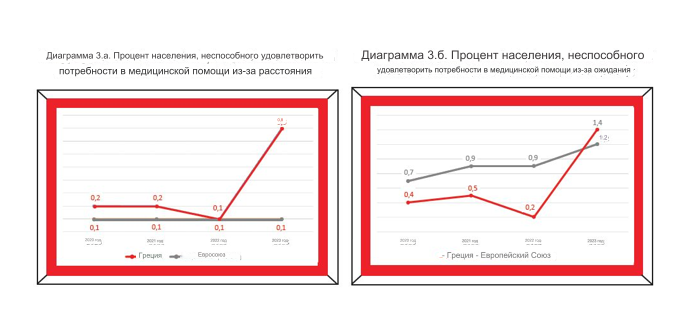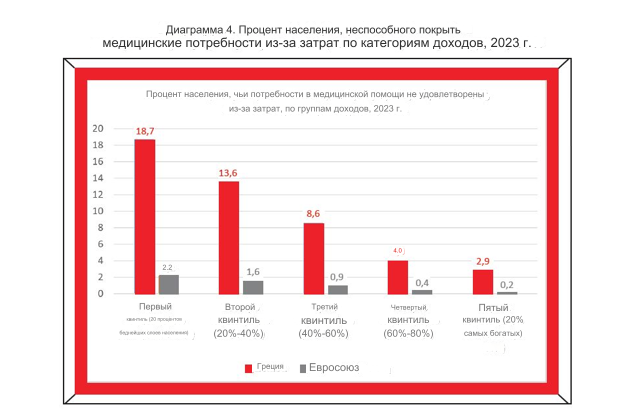“Health coverage is one of the most important aspects of social protection,” says the ENA Institute report.
The overall conclusion is that all countries in the European Union have public health systems, but citizens cannot always meet their needs for medical services and care.
Eurostat collects data about inability of citizens to meet their medical needswhich is explained by three main reasons: the high costs they have to pay, the long distance to the nearest clinic or hospital, and the necessary waiting time (in some cases – up to 1 month!) to receive service.
What does ENA analysis show? Figure 1 shows the percentage of the population that experiences health problems but cannot resolve them for any of three reasons.

Clearly the problem in Greece is clearly more acute than the European Union average and looks set to worsen sharply from 2022 onwards.
In 2020–2021 percentage of Greekswho were unable to receive medical services and solve their health problems were close to 6.5% compared to around 2% on average in the European Unionthat is more than three times.
In 2022 and 2023, this percentage rose to 9% and 11.6% respectively, and is now more than four times the European average.
The chart clearly shows that the vast majority of those who cannot meet their health care needs in Greece are in this situation because expensesThis percentage is Greece is by far the highest among the countries of the European Union. In second place is Romania with a large distance from Greece: in 2023, Romania's corresponding percentage was 3.8% compared to Greece's 9.4%.
The relative percentages due to the other two causes (distance and waiting) are shown in diagrams 2 and 3.

It is clear that these two factors prevent a smaller percentage of the population from meeting their needs for health care, but the deterioration of the situation in Greece in 2023 is quite obvious. Especially in the case of expectations Greece was in a better positionthan the European average until 2022, but in 2023 the situation changed.

Since the main reason that prevents citizens from meeting their health needs is high cost, we can assume that the problem varies depending on the financial situation of patients.

As might be expected, the cost of health care is clearly a major problem for the poor. 18.7% of patients in the lowest income bracket are left without health care because they cannot cover the costs.
The relative percentages decrease as we move up the income bracket scale. However, differences with the European average remain huge: the interest rates in Greece are even ten times higher than the corresponding European rates. It is characteristic that the problem remains even for financially secure people.
The percentage of the richest 20% of the population in Greece who are unable to cover their health needs due to costs (2.9%) is higher than the corresponding percentage of the poorest 20% of the population in the European Union (2.2%).







More Stories
You will be surprised to learn about the benefits of this popular sweet.
Snacks – good or bad, what foods can be harmful
Farmer Throws Six Tons of Green Olives Out on the Street